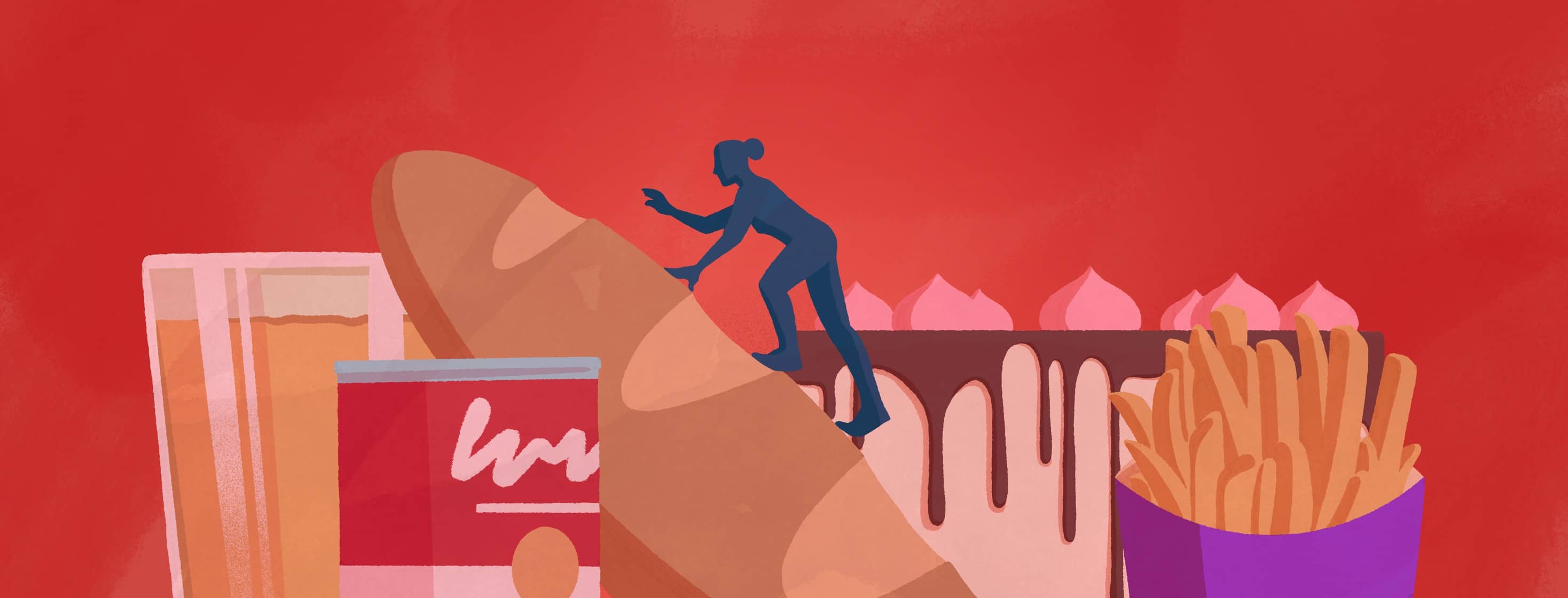Explaining Your Dietary Restrictions to Others
I used to be the Crohn's patient who boasted that, despite having Crohn's, I could eat and drink anything I wanted without any negative side effects. However, that all changed in 2013 when I was fed up with having more bad days than good days and unable to reach remission after trying 4 biologics.
I consulted with a nutritionist who strongly suggested I try a gluten-free diet (which I greatly resisted initially), and it actually changed my life for the better.
This article isn't about what diet is best for getting Crohn's or colitis symptoms under control (because, as we know, what works for one may not work for someone else). Rather it is a guide on how to explain to others why you eat certain foods and avoid others so that they understand, as well as make you feel comfortable when dining outside your home.
Tips for talking about your IBD dietary restrictions
Skip the details
Sometimes, keeping it simple is best. Rather than explaining why you follow the AIP Diet or avoid dairy, simply saying that eating a certain way helps keep your symptoms under control should be enough for others to understand.
You can skip the part that dairy gives you uncontrollable diarrhea or that coming within an arm's length of a mushroom will give you enough gas to float the Goodyear Blimp. Knowing you have Crohn's or colitis should be reason enough for someone to not question your dietary choices, and if your company is unaware of your disease, simply saying, "I feel better when I avoid this," is enough.
Make your boundaries clear
I remember when I was first gluten-free. It amazed me how many people not only did not understand what foods contained gluten (you can have a potato but you can't have bread??) but that cheating on this "diet" was an absolute no-no.
Taking "just one little bite" of a food that wreaks havoc through your system is 100% out of the question. I had to remind them that it wasn't like I could run an extra 10 minutes on the treadmill to work off what I ate. Once the gluten was inside me, regardless of how little or how much, I would feel the effects for the next 24-48 hours. The same is true for fried foods or spicy foods – I cannot tolerate any amount so I have to be very clear that these foods are totally off-limits.
Be patient and kind
This is incredibly important. I have been living a gluten-free lifestyle for 8 years and I still get frustrated when I go to a restaurant and am served a gluten-filled dish or have to ask a million questions in order to ensure that my order is correct (and safe). However, I still practice patience and grace when speaking with the waiter (they are, after all, handling my food) and the same is true for when I visit someone's house who doesn't quite understand what I can and cannot eat.
Kindly explaining what you eat and the foods you avoid is essential in getting your point across without angering others, allowing for compassion and understanding.
Understand that it may take some time to get comfortable
The first few months of being gluten-free were extremely difficult for me. In addition to trying to navigate dining out, I had to suddenly become a different person to those who have known me the longest – my friends and family. I literally went to my parents' house one day and just said, "I can't eat that [bread], I am now gluten-free," and they looked at me like I had 3 heads.
It took some explaining as to why I decided to pursue this diet, but once they understood that I felt better eating this way, they were completely understanding and supportive. The same was true when I told my friends. They initially had some questions about my diet, but knowing that it made me well, they fully supported me and had no problems ordering gluten-free appetizers to share at the table or sending back a beer that was supposed to be cider.
Food is a part of everyday life, Crohn's or not
Despite everyone's support, it still took some time to get comfortable in being "that girl" who had to ask for modifications and say "yes!" when the waiter asked if anyone at the table had any dietary restrictions or allergies they should know about. However, after a few months of embracing this new lifestyle, I became more comfortable and now, 8 years later, I cannot imagine my life any other way.

Join the conversation